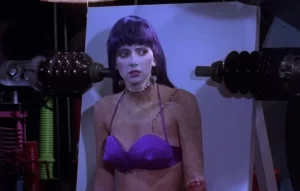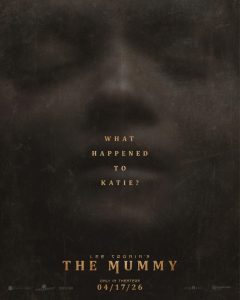The post Criterion Prediction #283: Taxi Driver, by Alexander Miller appeared first on Battleship Pretension.
Title: Taxi Driver
Year: 1976
Director: Martin Scorsese
Cast: Robert De Niro, Jodie Foster, Harvey Keitel, Cybill Shepherd, Peter Boyle, Albert Brooks, Victor Argo, Leonard Harris
Synopsis: After a failed romantic endeavor with a political campaign volunteer Betsy (Shepherd) Vietnam veteran Travis Bickle (De Niro) grows more isolated in a world of crime and sleaze in 1970s NYC. As Bickle becomes more detached from reality, he befriends a child prostitute, Iris (Foster), and gathers a small arsenal of handguns.
Critique: Over the past twenty years I have had quite the journey with this film. In two decades, I have loved, liked, disliked, matured into, outgrew, rediscovered, overpraised, undervalued, and now realized that Taxi Driver is one of Martin Scorsese’s phenomenal movies.
As is the case with many, Taxi Driver was a movie that I saw when I was way too young. Among the things appropriated in the mid-to-late nineties (and early 2000’s), Martin Scorsese’s seminal Taxi Driver deserved better than its punk rock credentials; the exchange rate didn’t match the value of the film, but that’s the risk of inconsistent association. There were posters, keychains, and shirts of De Niro pointing guns, looking awesome with a mohawk and most of these prints were in grainy B&W. I remember a lot of people misremembering an image of De Niro flipping the bird with one hand, holding a gun in the other. No, it’s not the Mandela effect, it’s misremembering.
For a preadolescent Alex, Taxi Driver was finally a chance to see this controversial film dialed into the cultural lexicon, constantly referenced and quoted; but, what many of us weren’t thinking at that time were all of the attributes that actually make the movie.
We were not concerned with the decay and squalor of NYC in the 1970s; we didn’t consider the looming specter of Vietnam, alienation of veterans, urban decay, and PTSD. We sure as hell didn’t know about Paul Schrader’s Calvinist fatalism and how it pairs, compliments, and condemns Martin Scorsese’s ever-rattling Catholic guilt – not to mention the cocaine energy that was, well, everywhere.
Given how much was zooming overhead, it’s amazing we got anything out of Taxi Driver. The isolation, the echoing loneliness of words like “God’s lonely man,” and the loss of innocence in Jodie Foster’s character, we were the same age; the recency of that was a deep-cut.
It’s almost embarrassing to admit that we were stoked because “this is the Robert De Niro movie where he sports a mohawk, gets a bunch of guns, and shoots people!” The “you talkin’ to me” novelty was another bonus. The movie delivered on those anticipations, but a lot of the substantial aspects felt like work.
Well it goes to show that flimsy influences result in flimsy returns.
Needless to say, when the camera is panning out of the bloodbath Travis Bickle ushered in, with Bernard Hermann’s music sweeping us away, we’re thinking, “What the fuck was that? Granted, the finale was jarring, it was violent. We heard the word “cum” and there were skeezy porno theaters; but the process getting us to the climax felt like work.
For the most part, we were expecting a Robert De Niro Death Wish with mohawks. But we convinced ourselves that it was great. I mean, Taxi Driver had to be great, I had the damn poster hanging up in my bedroom, so it had to be awesome, right? With some years in between my maiden viewing, I was proselytizing some friends with my used VHS, I somehow got my hands on.
Later, I veered more toward Leonard Maltin’s perspective. One of his many contrasting reviews refers to Taxi Driver as “ugly” and “unredeeming” and, he’s not wrong. I went through a period where I felt like Scorsese was exercising tremendous energy and style, but the impact was diluted because I had no frame of reference for the film; the auteur theory was a few years away, and Taxi Driver eschews genre and is a film that is very much a part of the director’s identity.
But the key that opened Pandora’s box was Paul Schrader. For a long time, he was always regarded as a screenwriter who also directed, but his directorial body felt secondary. It was around the time First Reformed came out. I had experienced Schrader’s range as a director and screenwriter. Learning more about him by watching Affliction, Mishima: A Life in Four Chapters, Hardcore, Light Sleeper I realized that Paul Schrader is both a warrior and an aesthete in that he can’t help himself, and despite thematic repetition, his films are immunized to redundancy; once I began to understand De Niro’s God’s lonely man as a creation authored by both Scorsese and Schrader Taxi Driver exploded.
It’s the ability to charge a room, that feeling when Schrader channels Robert Bresson, like he says in his introduction to the Criterion release of Pickpocket, that “you can make a film about a man in a room, in his room, you can make a film about the soul…” there’s that energy you feel in watching solitary meticulous action. This is Schrader’s Bressonian literacy. Cinematic transference. It’s almost spiritual.
Being in a room with a volatile, dangerous man, it’s not comfortable, but you feel drawn to the darkness; you want to know this unknowable entity. It’s the dynamic area where a man can be scary and tense yet emit some emotional depth; it diverts the potential to “admire” Travis Bickle for his vigilantism, but rather recognize the volume of isolation and find something in it.
It’s not a matter of weighing what’s “good” or what’s “bad”. It’s that recency and intimacy of a turgid room; in Taxi Driver’s darkest moments, we see the icy precision of an intense man who also embodies the unpredictability of skilled violence. Like Michel in Pickpocket, Bickle is overseeing a rigorous self-investigation and, in the wake of a spiritual absence, has sought to distinguish themselves with a criminal rebellion; Michel fancies himself a rogue thief, while Travis is a noble warrior in a conquest no one asked for. This intersection where Schrader and Scorsese overlap, collide, and complicate is the light that made me see Taxi Driver in all of its cinematic dynamism. The movie is best when Scorsese can’t help himself, the accelerated frame rate when De Niro waves his arm, the double take voiceover, “Listen to you fuckers, you screwheads…” the crossfades, and close-ups of Bickle’s writing; these are the moments that crackle.
Complex and dark but it’s naked and raw. Knowing these two unique cinematic voices that are, at the time of release (and more so by the time I traipsed into their worlds) defined and distinct; and yet they don’t bump, they collide, exploding the sovereignty of authorship; Taxi Driver is one movie with two visions. And that’s the necessary conclusion that resolved my changing interpretation of the film. Don’t try to figure it all out, but luxuriate in the complications that demand our attention.
Why It Belongs in the Collection: The Criterion Collection started with The Last Temptation of Christ, one of Scorsese’s most personal and spiritual movies; now we have that, After-Hours, The Irishman, Mean Streets, Raging Bull, The Last Waltz, The Age of Innocence, Rolling Thunder Revue, and that great collection of his shorts. Now we need more, Taxi Driver is the most logical extension of this maverick director’s presence in the collection. I could have left this section blank, and readers would get it.
The post Criterion Prediction #283: Taxi Driver, by Alexander Miller first appeared on Battleship Pretension.
The post Criterion Prediction #283: Taxi Driver, by Alexander Miller appeared first on Battleship Pretension.







